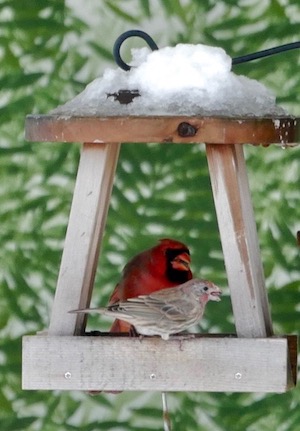Life Hacker - 17 Soothing Videos to Watch If You’re Feeling Panicky for Some Reason – “I woke up this morning chanting a little mantra to myself: It’s just a regular Tuesday, it’s just a regular Tuesday, it’s just a regular Tuesday. Apparently my body couldn’t be tricked, though, because it remained in a heightened state of anxiety—even beyond what it’s normally capable of, which is saying something. So I went on a hunt for soothing videos to calm my nerves, and I asked my Lifehacker colleagues to join me on this quest. So come along with us on our video journey, as we try not to think too hard about … things. It’s an eclectic collection, as we are an eclectic group. So get ready…”
How India Celebrated Diwali Amid Coronavirus Pandemic. See Pics NDTV
Last year, I shared the concept designs for Norway’s new passports by creative agency Neue. Last month, the first documents using the new design were released. You can see them here.
Aside from a design that makes the passport safer, the passport also has details from Norwegian nature used both as a background illustration and a security element.
Here’s something we’re still struggling with at Filament: How might we surface the nonverbal cues otherwise invisible in virtual meetings? The ability to see people and observe them observing us during work builds a framework for a lot of important parts of teamwork. It helps us establish trust, gain commitment, confirm understanding and consensus, or understand emotional states.
Freakonomics: “As beloved and familiar as they are, we rarely stop to consider life from the dog’s point of view. That stops now. In this latest installment of the Freakonomics Radio Book Club, we discuss Inside of a Dogwith the cognitive scientist (and dog devotee) Alexandra Horowitz. Listen and subscribe to our podcast at Apple Podcasts, Stitcher, or elsewhere. Below is a transcript of the episode, edited for readability. For more information on the people and ideas in the episode, see the links at the bottom of this post…”
America is a dog-loving nation. Hard numbers aren’t easy to come by, but it’s estimated there are between 77 and 90 million dogs in the U.S., with roughly 40 to 50 percent of households having at least one. We also have a lot of cats, but dogs appear to be a bit more popular. The pandemic has brought even more dogs into our homes, and made us even closer. So, how well do you know your dog? We may think we know them pretty well. But the fact that they are so familiar can actually make it harder to see dogs as they really are…”Life Hacker - 17 Soothing Videos to Watch If You’re Feeling Panicky for Some Reason
The Rambling - Librarian, Read Thyself: “Why would you enter a dying field?” “You need a master’s degree to shelve books?” “Must be nice to sit and read all day.” Such commentary is a rite of passage for librarians, inflicted by everyone from family members to university administrators. Equally often, however, the remarks are effusive: “I LOVE librarians!” “Librarians are superheroes!” “Librarians will save the world!” Contemptuous ignorance and broad-strokes adulation are two symptoms of one pervasive problem: as a society, we have a woeful understanding of what librarians do, a side effect of which ignorance is that librarians frequently try to do everything with two years (part-time) of formal training, a median salary of $59,050, and shaky public standing.
The ostensible praise, then, is no less troubling than the smirking denigrations. Indeed, librarianship is so habitually devalued, ignored, or misapprehended that it has developed insidious coping mechanisms. Fobazi Ettarhdetails these compensatory measures of self-preservation (with heaping sides of job creep and martyr complex) in her 2018 essay “Vocational Awe and Librarianship,” which has made a deep impact within the profession and warrants attention in parallel fields. We may be overworked, undercompensated, and misunderstood, but what we do is special; this beatifically embattled disposition is vocational awe. Libraries are “special” because we tend to see them as bastions of democracy, progressive havens for intellection and innovation. In recent years, they’ve also become havens for those in need—of books, music, and storytimes, yes, but moreover of internet and tech access, restrooms, four walls and a roof. These attributes do make libraries special, but they also make them a terrible symptom of this country’s truths. We have virtually no safety nets; homeless shelters and social workers are overwhelmed; childcare is grotesquely expensive; addiction is rampant. These needs have been neglected, consolidated, and displaced largely onto libraries…”
